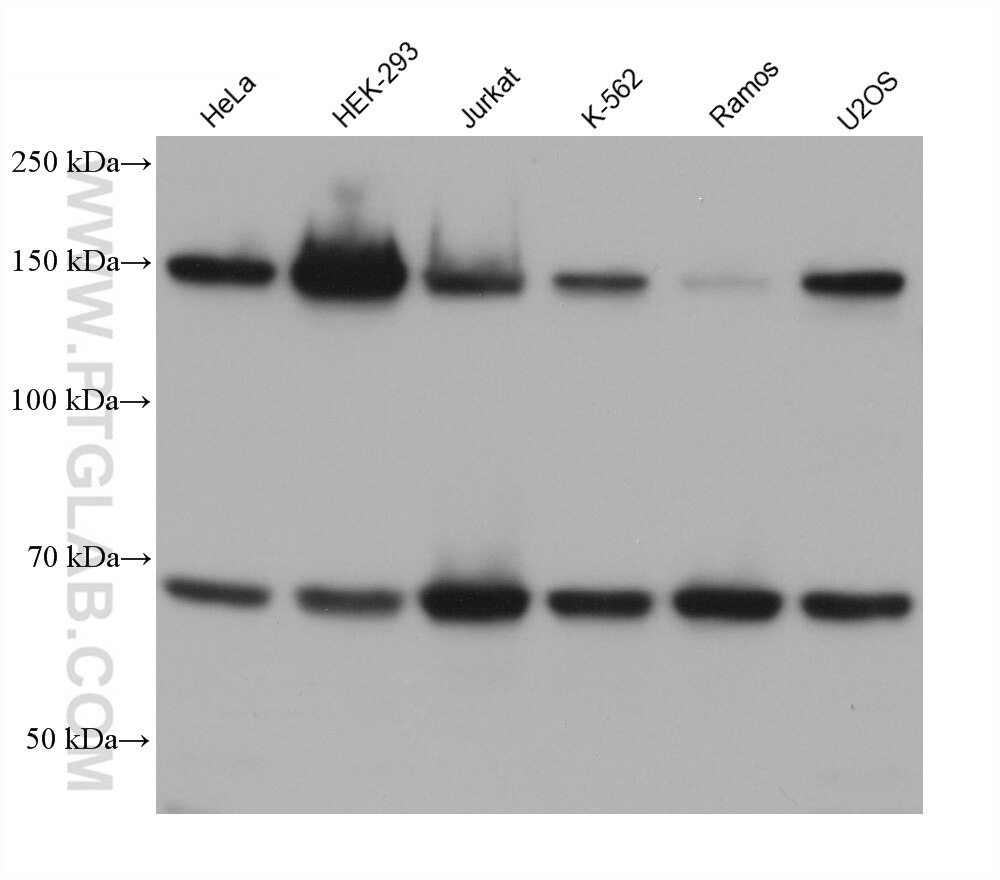Tested Applications
| Positive WB detected in | HeLa cells, HEK-293 cells, Jurkat cells, K-562 cells, Ramos cells, U2OS cells |
Recommended dilution
| Application | Dilution |
|---|---|
| Western Blot (WB) | WB : 1:5000-1:50000 |
| It is recommended that this reagent should be titrated in each testing system to obtain optimal results. | |
| Sample-dependent, Check data in validation data gallery. | |
Product Information
68710-1-Ig targets NASP in WB, ELISA applications and shows reactivity with Human samples.
| Tested Reactivity | Human |
| Host / Isotype | Mouse / IgG1 |
| Class | Monoclonal |
| Type | Antibody |
| Immunogen | NASP fusion protein Ag1824 Predict reactive species |
| Full Name | nuclear autoantigenic sperm protein (histone-binding) |
| Calculated Molecular Weight | 788 aa, 85 kDa |
| Observed Molecular Weight | 150 kDa, 70 kDa |
| GenBank Accession Number | BC010105 |
| Gene Symbol | NASP |
| Gene ID (NCBI) | 4678 |
| RRID | AB_3670403 |
| Conjugate | Unconjugated |
| Form | Liquid |
| Purification Method | Protein G purification |
| UNIPROT ID | P49321 |
| Storage Buffer | PBS with 0.02% sodium azide and 50% glycerol , pH 7.3 |
| Storage Conditions | Store at -20°C. Stable for one year after shipment. Aliquoting is unnecessary for -20oC storage. 20ul sizes contain 0.1% BSA. |
Background Information
NASP (nuclear autoantigenic sperm protein) is associated with DNA replication, cell proliferation and cell cycle progression through functioning as a Histone H1 binding protein that mediates histone transport to the nucleus. NASP had two isoforms, tNASP (testis type) and sNASP (somatic type). The tNASP was mainly expressed in testis, a variety of malignant tumors, stem cells and embryonic tissues, while sNASP existed in all somatic mitosis cells. This antibody can recognize both isoforms.
Protocols
| Product Specific Protocols | |
|---|---|
| WB protocol for NASP antibody 68710-1-Ig | Download protocol |
| Standard Protocols | |
|---|---|
| Click here to view our Standard Protocols |



